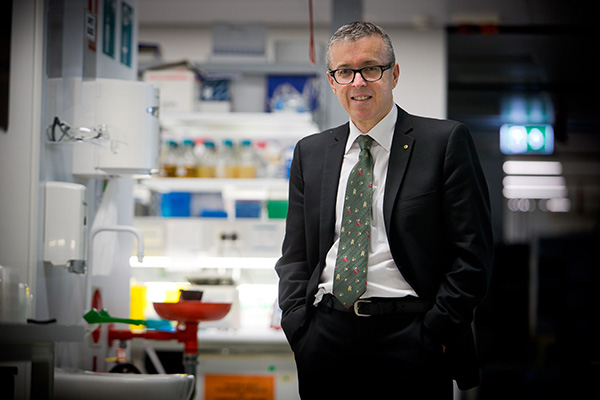Newborns with vitamin D deficiency have an increased risk of developing schizophrenia later in life
The DNRF’s Niels Bohr Professor John McGrath, from the University of Queensland, Australia and Aarhus University, Denmark, led a study that found how newborns with vitamin D deficiency have an increased risk of developing schizophrenia later in life. The study was recently published in the scientific journal Nature Scientific Reports.

Professor John McGrath from the Queensland Brain Institute at the University of Queensland and one of the DNRF’s Niels Bohr Professors at Aarhus University was in charge of a new study, recently published in Nature Scientific Reports, that confirms how newborns with vitamin D deficiency have an increased risk of developing schizophrenia later in adult life.
“Schizophrenia is a group of poorly understood brain disorders characterized by symptoms such as hallucinations, delusions, and cognitive impairment,” said Professor McGrath. He continued:
“As the developing fetus is totally reliant on the mother’s vitamin D stores, our findings suggest that ensuring pregnant women have adequate levels of vitamin D may result in the prevention of some schizophrenia cases, in a manner comparable to the role folate supplementation has played in the prevention of spina bifida.”
The study is based on Professor McGrath’s and his research team’s examination of blood samples from 2602 Danish children born between 1981 and 2000 who developed schizophrenia as young adults.
Professor McGrath and his research team analyzed the concentration of vitamin D in blood samples from the children, and the results showed that newborns with vitamin D deficiency have up to a 44% higher risk of developing schizophrenia later in life than newborns with a normal concentration of vitamin D.
According to Professor McGrath, the development of schizophrenia is connected with many different risk factors such as genetics and environment, yet the results from his research suggest that newborns with vitamin D deficiency account for approximately 8% of the total number of cases of schizophrenia in Denmark
Read the scientific article in Nature Scientific Reports here.
More information about the study can be found at the University of Queensland here.
